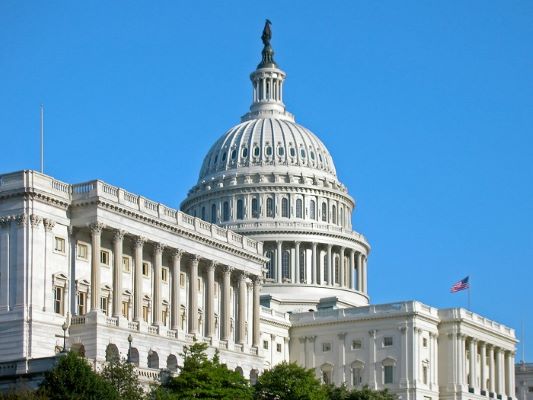Inside D.C.
It’s time to start thinking November 3

The general election is less than four months away. It is time to begin thinking long and hard about who will be this nation’s chief executive for the next four years, and nearly as important, which party will control Congress. Given this country’s challenges, November 3 is not just another election.
The trick to this exercise is to step back from the immediacy of the seeming tsunami of challenges confronting agriculture right now. Rather than think about “me,” think about “us” when conducting the analysis.
The practice of picking the best candidate for the job is not unlike picking a new piece of machinery, whether a combine or a computer. You do the research as to which of your options can best do the job you want/need done. You go online, you cruise legitimate media, you attend events — even those of the “other side” — and you talk to your friends and family, you rely on your own experience and, ultimately, you trust your gut. After all, you’re making a significant investment.
Voters must remove the blinders of short-term self-interest when it comes to both who lives in the White House or walks the halls of Congress. If the COVID 19 pandemic has taught us anything, it’s that selfish actions lead to greater pain if not potential disasters. Simply put, sacrifices must be made because there’s the greater good to be considered. Even though, as former Speaker Tip O’Neill (D, MA) said, “All politics is local,” these days we must think and act bigger.
Voters need to look long and hard at the four years behind us, the actions of President Trump and Vice President Pence and what they’re promising moving forward. Voters must examine not only the eight-year record of former Vice President Biden, but whom he selects as his running mate and his party’s platform moving forward.
When it comes to Congress, to the degree brick-throwing partisans of any age, gender or region can be unelected or not elected, the country will be generally better off. At the same time, extremists from either party generally aren’t helpful either. Candidates who run for Congress because they’ve retired from first careers, whatever those might be, and they think being a lawmaker would be preferable to retirement are not necessarily running for the right reason.
Tough questions must be asked including whether the tenure of a veteran member of Congress has demonstrated wisdom, backbone and solid benefit to his/her state or district, or has that person been reelected time after time based on name recognition or party affiliation. Is it time for “new blood?” must be asked in in every reevaluation of every incumbent.
And speaking of party affiliation, it’s time to bring back the split ticket. It’s perfectly reasonable and likely preferable, to vote for candidates from both parties. Voters must be of open minded enough to select the best person for the job, not simply and automatically vote for a party’s anointed candidate. The same goes for knee jerk rejection of a candidate based on whether they’re running as a Republican or a Democrat. Adopting a “never GOP” or “never Democrat” attitude is silly.
What voters must do is approach November 3 as a blank slate and start tallying up the good and bad of all the players in the game for whom you vote. Are you and yours better off? If not, does the other candidate have a plan to get you there? Are the goals espoused reasonable and achievable? Do the candidate’s understanding of and ideas about agriculture, rural America, national economics, social programs, emergency preparedness, taxes, trade, science/technology, etc., make sense, as in do they comport with yours?
When you walk into that voting booth, whether in a primary or the general, the last question you should ask is this: “Who do I trust?”

Add Comment